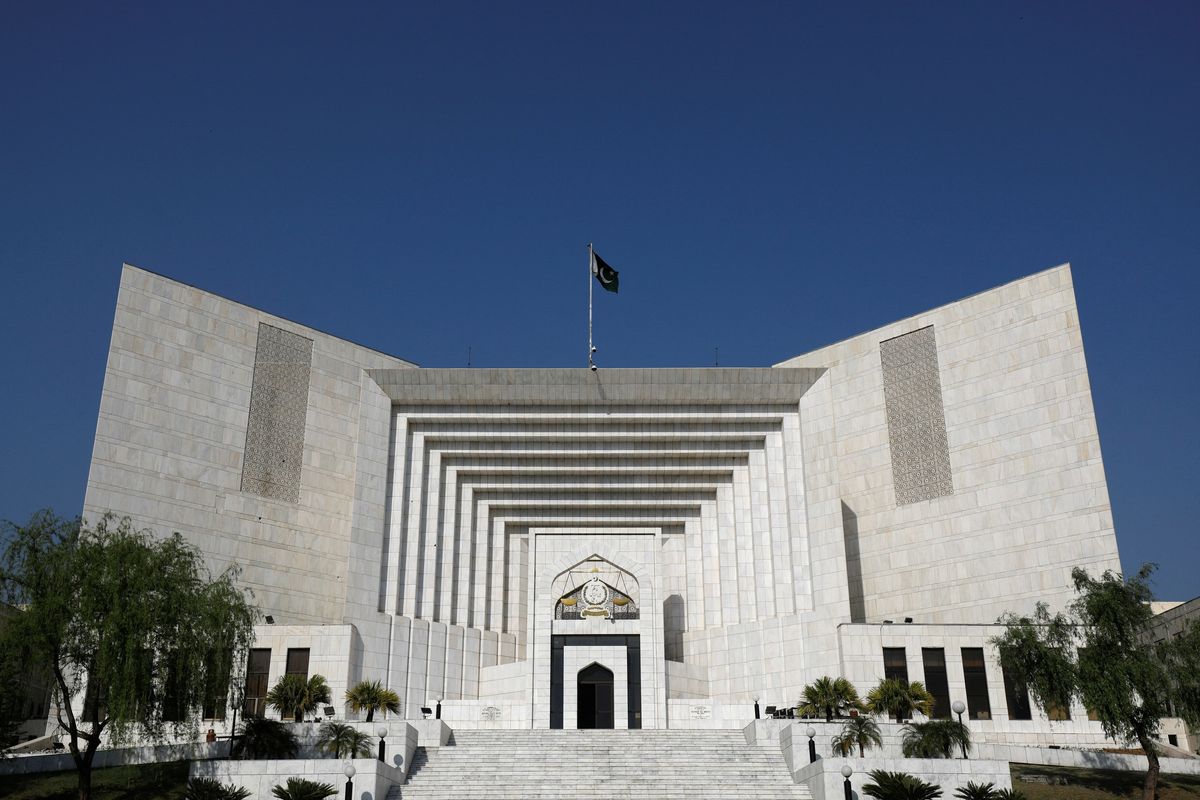Pakistan’s top court upholds military trials for civilians, orders right of appeal to high courts
The court ruled military courts’ limited jurisdiction constitutional but noted their appellate structure is inadequate for civilian trials
Ali Hamza
Correspondent
Ali; a journalist with 3 years of experience, working in Newspaper. Worked in Field, covered Big Legal Constitutional and Political Events in Pakistan since 2022. Graduate of DePaul University, Chicago.

Pakistan’s Supreme Court on Monday upheld the legality of military trials for civilians linked to the May 2023 riots, while mandating that Parliament establish a right of appeal to the high courts.
A five-judge majority endorsed the practice, with two dissenting, in a detailed verdict released today.
The full written judgment was published on the court’s website, providing comprehensive reasoning for the decision that had initially been announced in a short order on May 7, 2025.
The case originated after more than 100 civilians were handed over for trial under the Pakistan Army Act, 1952, following the violent protests of May 9 and 10, 2023.
While a previous bench had struck down provisions of the Act as unconstitutional, the current seven-member bench, by a majority of five to two, allowed government appeals and restored those provisions.
Justice Amin-ud-Din Khan authored the detailed judgment, alongside Justices Muhammad Ali Mazhar, Syed Hasan Azhar Rizvi, Musarrat Hilali, and Shahid Bilal Hassan. These five judges upheld Section 2(1)(d) and Section 59(4) of the Army Act as constitutionally valid.
Two judges, Justice Jamal Khan Mandokhail and Justice Naeem Akhter Afghan, dissented, arguing that civilians should not be subject to military trials.
The majority drew on precedent, including the 1975 Brigadier F.B. Ali case, which permitted limited military jurisdiction over civilians when offences have a close and direct link to the Armed Forces or national defense.
The bench also cited Article 8(3)(a) of the Constitution, which exempts laws relating to the Armed Forces from ordinary fundamental rights review. Procedural safeguards under the Army Act - such as notice of charges, representation by counsel and internal appeals - were deemed to meet basic due process standards.
The court rejected claims that military courts inherently violate the separation of powers under Article 175, affirming that their limited jurisdiction is constitutionally permissible. However, it stressed that the existing military appellate structure is insufficient for civilian trials.
To remedy this, the court directed parliament to enact legislation within 45 days creating an independent right of appeal to the high courts against civilian convictions in military courts.
Since the May 9 riots, at least 85 civilians have been sentenced by military courts in two phases, with prison terms ranging from two to ten years.
Of these, 67 filed mercy petitions, 19 of which were granted on humanitarian grounds, while some convictions have also been upheld by the Peshawar High Court.










Comments
See what people are discussing